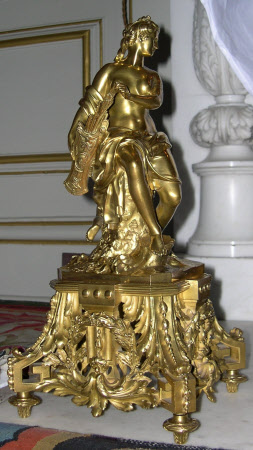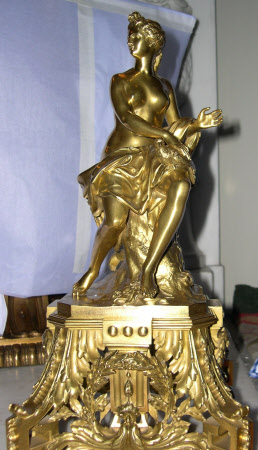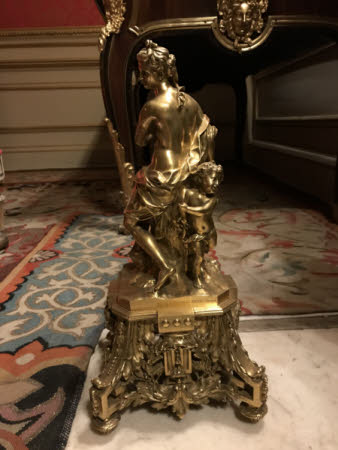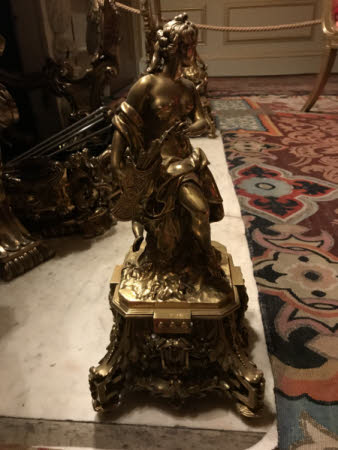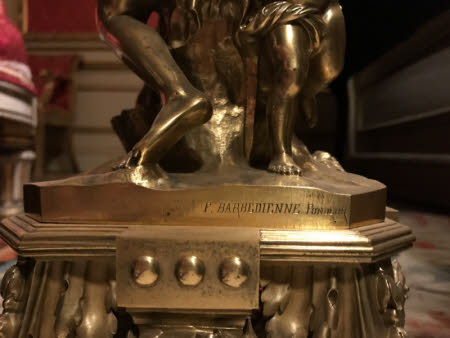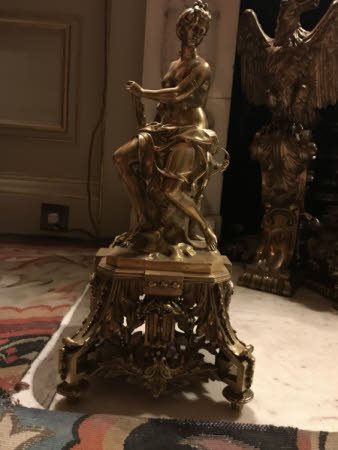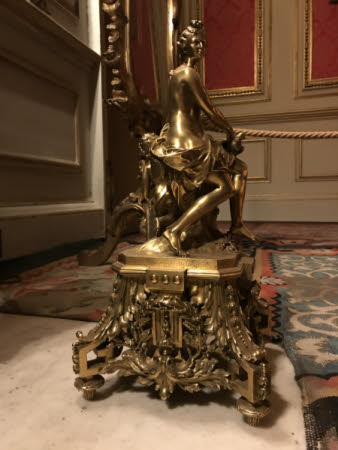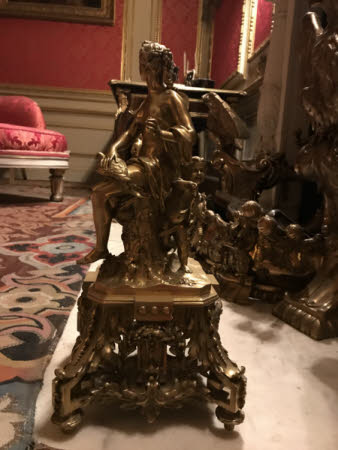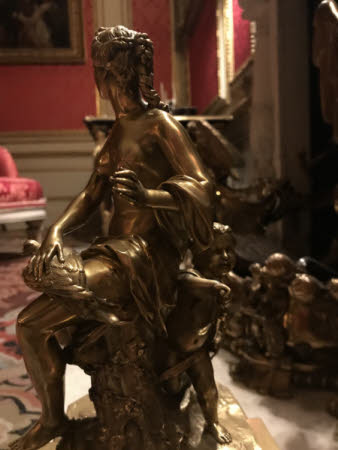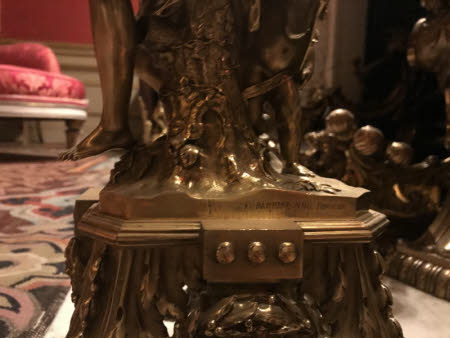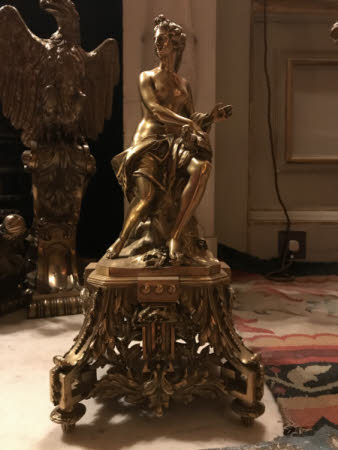Pair of ormolu andirons, Diana and Venus
Ferdinand Barbedienne (Calvados 1810 - Paris 1892)
Category
Art / Sculpture
Date
Unknown
Materials
Ormolu
Measurements
410 x 210 x 210 mm
Place of origin
Paris
Order this imageCollection
Belton House, Lincolnshire
NT 435374
Summary
Ormolu, Diana and Venus, Ferdinand Barbedienne (1810-92) after Nicolas Coustou (1758-1633), signed F. Barbedienne Fondeur, 19th century.
Full description
Diana, the goddess of the hunt, the moon and nature, is seated on a tree trunk, her lower half draped. She turns to one side, while her arms reach in the opposite direction for her quiver. Behind her a putto holds her bow. Venus, goddess of love, is seated on a tree trunk, her lower half draped. She turns to one side, with one hand resting on a dove and the other outstretched, gesturing in the opposite direction. Behind her a putto holds a sword. Both ormolu figures are mounted on spreading square bases of Louis XVI design. The andirons were cast in Paris by the noted French bronze founder Ferdinand Barbedienne after marble sculptures by Nicolas Coustou. Now housed in the Musée du Louvre, Coustou’s Diana and Venus were originally joined by the resting figure of Adonis to form a sculptural group illustrating the theme of the hunt (inventory nos. M.R. 1796, 1799, 1800). The three sculptures, dated 1710, were installed next to the Horse Pond in Louis XIV’s Château de Marly. Alice Rylance-Watson October 2018
Provenance
Purchased with a grant from the National Heritage Memorial Fund (NHMF) from Edward John Peregrine Cust, 7th Baron Brownlow, C. St J. (b.1936) in 1984.
Credit line
Belton House, The Brownlow Collection (acquired with the help of the National Heritage Memorial Fund by the National Trust in 1994)
Makers and roles
Ferdinand Barbedienne (Calvados 1810 - Paris 1892), founder
